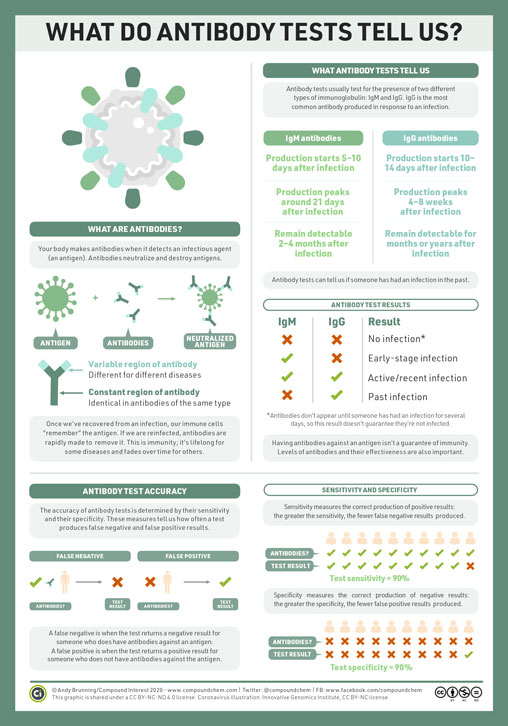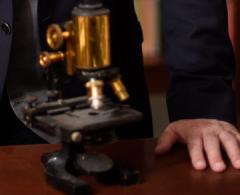
This Article From Issue
September-October 2020
Volume 108, Number 5
Page 266
What Are Antibodies?
Your body makes antibodies when it detects an infectious agent (an antigen). Antibodies neutralize and destroy antigens.
Once we've recovered from an infection, our immune cells "remember" the antigen. If we are reinfected, antibodies are rapidly made to remove it. This is immunity; it's lifelong for some diseases and fades over time for others.

Antibody Test Accuracy
The accuracy of antibody tests is determined by their sensitivity and their specificity. These measures tell us how often a test produces false negative and false positive results.
A false negative is when the test returns a negative result for someone who does have antibodies against an antigen. A false positive is when the test returns a positive result for someone who does not have antibodies against the antigen.
What Antibody Tests Tell Us
Antibody tests usually test for the presence of two different types of immunoglobulin: IgM and IgG. IgG is the most common antibody produced in response to an infection.
Antibody tests can tell us if someone has had an infection in the past.
Antibody Test Results
Having antibodies against an antigen isn’t a guarantee of immunity. Levels of antibodies and their effectiveness are also important.
Sensitivity and Specificity
Sensitivity measures the correct production of positive results: the greater the sensitivity, the fewer false negative results produced.
Specificity measures the correct production of negative results: the greater the specificity, the fewer false positive results produced.
© Andy Brunning/Compound Interest 2020 - www.compoundchem.com | Twitter: @compoundchem | FB: www.facebook.com/compoundchem This graphic is shared under a CC BY-NC-ND 4.0 license. Coronavirus illustration: Innovative Genomics Institute, CC BY-NC license.

American Scientist Comments and Discussion
To discuss our articles or comment on them, please share them and tag American Scientist on social media platforms. Here are links to our profiles on Twitter, Facebook, and LinkedIn.
If we re-share your post, we will moderate comments/discussion following our comments policy.